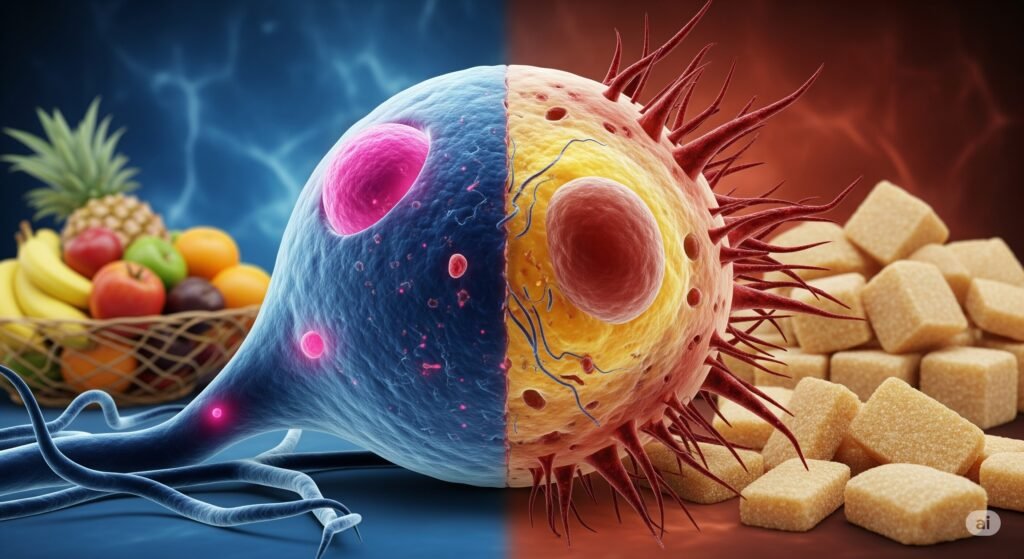Sugar tastes good, but what does it really do inside you? Uncover the truth about sugar’s effects on your health and make informed choices.
The Allure of Sweetness
From that morning cup of coffee to an evening treat, sugar is deeply ingrained in the American diet. It’s a primary source of energy and undeniably delicious. But as with many good things, too much can have consequences. Understanding how sugar truly impacts your body is the first step towards making healthier choices.
The Immediate Effects
When you consume sugar, your body breaks it down into glucose, which fuels your cells. This can provide a quick burst of energy, which is why you might crave something sweet when you’re feeling tired. However, this energy rush is often followed by a crash as your blood sugar levels plummet. This can leave you feeling sluggish, irritable, and craving more sugar – creating a vicious cycle.
The Long-Term Consequences
Consistent overconsumption of sugar can have more significant effects on your long-term health. Some of these include:
- Weight Gain: Excess sugar, especially from sugary drinks, provides empty calories. If these calories aren’t burned off, they are stored as fat, contributing to weight gain and increasing the risk of obesity.
- Increased Risk of Type 2 Diabetes: Over time, high sugar intake can lead to insulin resistance, a condition where your body’s cells don’t respond effectively to insulin, potentially leading to type 2 diabetes.
- Heart Health Concerns: Studies have linked high sugar diets to an increased risk of heart disease, potentially by raising blood pressure, triglyceride levels, and harmful LDL cholesterol.
- Negative Impact on Dental Health: Sugar feeds the bacteria in your mouth, which produce acids that can erode tooth enamel, leading to cavities.
- Potential Inflammation: Some research suggests that high sugar intake can contribute to chronic inflammation in the body, which is linked to various health problems.
Hidden Sugars: Where Else Is It Lurking?
It’s not just the obvious culprits like candy and soda that contribute to our sugar intake. Many processed foods contain significant amounts of added sugars that you might not even realize are there. Be sure to check food labels for ingredients like:
- High-fructose corn syrup
- Sucrose
- Dextrose
- Corn syrup solids
- Agave nectar
These are all forms of added sugar that can contribute to the negative health effects mentioned earlier. They can be found in surprising places like sauces, yogurt, granola bars, and even seemingly savory snacks.
Making Informed Choices
The good news is that you can take control of your sugar intake. Here are a few simple steps:
- Read Food Labels: Pay attention to the “added sugars” listed on nutrition facts panels.
- Limit Sugary Drinks: Opt for water, unsweetened tea, or sparkling water instead of soda, juice, and sweetened beverages.
- Choose Whole Foods: Focus on fruits, vegetables, lean proteins, and whole grains, which naturally contain less added sugar.
- Be Mindful of Portions: Even natural sugars in fruit should be consumed in moderation.
- Find Healthy Alternatives: Explore naturally sweet options like fruit or a sprinkle of cinnamon to satisfy your sweet tooth.
Understanding the truth about sugar empowers you to make informed choices that support your overall health and well-being. While an occasional treat is perfectly fine, being mindful of your daily sugar intake can make a significant difference in the long run.










